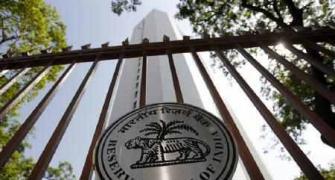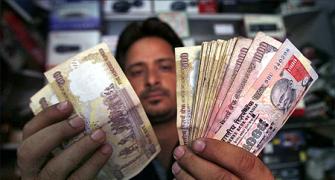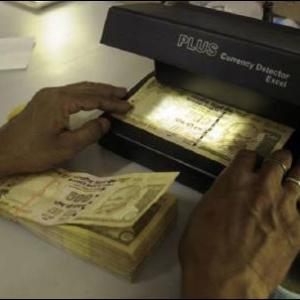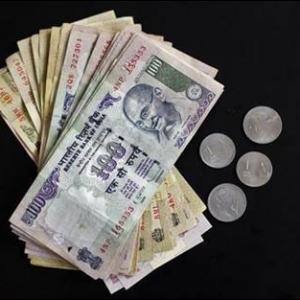The Reserve Bank of India (RBI) on Monday said capital flows would determine where the Indian currency was headed. The rupee has fallen 4.3 per cent against the dollar since the month began, despite RBI's intervention and administrative measures. On Monday, the currency closed at an all-time low of 55.03, prompting the central bank to restrict currency futures trading and curtail arbitrage opportunity.
On Monday, the currency closed at an all-time low of 55.03, prompting the central bank to restrict currency futures trading and curtail arbitrage opportunity.
"It has been touching lows regularly. There is strong pressure on the rupee to depreciate," Subir Gokarn, one of RBI's deputy governors, said on Monday.
"This is coming from a number of factors. One is the current account deficit. Demand from oil has been strong, particularly on Monday, and the capital flows are not matching that. We have done a number of things and will continue to do things that we think have an impact of stabilising the currency. But, ultimately, capital flows are going to be the main determinant of how the currency behaves."
Last week, RBI mandated that exporters cut their dollar holdings by half within 15 days, which would be this Wednesday. "There are a number of other ways through which we are attempting to supplement the flow of dollars,"
RBI is not seen selling dollars aggressively in the foreign exchange market to offset the demand, as its capacity to use foreign exchange reserves is limited. Between September and March, RBI sold $20 billion in the spot market.
"Our reserves are part of an overall set of tools that we have. Intervention has certainly been one element, one component of our approach. But we're also doing a lot of other things, including finding ways to increase flows through adjustments," he said. The foreign exchange reserve is $292 billion, enough to finance imports for close to seven months.
The central bank is actively injecting liquidity in the market by buying bonds via open market operations (OMO) and will continue to do so. "We are keeping track of that (liquidity). We did an OMO last week; we're likely to do one this week as well, just to make sure the gap is not widening."
Gokarn said the weekly capacity for OMOs were limited but RBI would continue with the step if the liquidity situation warranted. RBI aims to maintain liquidity within plus or minus one per cent of net demand and time liabilities of banks. Regarding a window for oil companies, he said all measures were always being considered and their pros and cons were being weighed.










